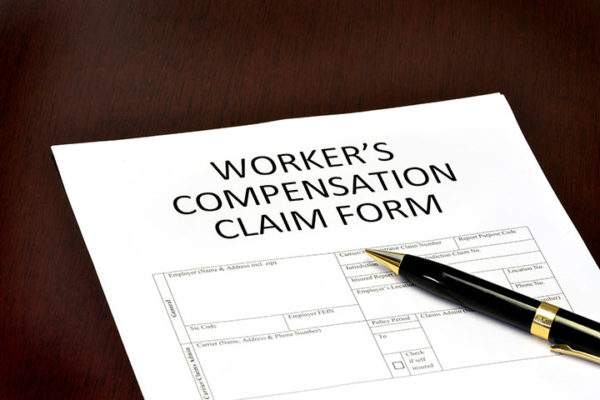

On April 20, 2021, the Occupational Safety and Health Administration (OSHA) released three new FAQs for employers who recommend or require employees to receive COVID-19 vaccines. OSHA is responsible for enforcing workplace safety standards across the US.
McDermott previously reported that employers can require employees to be vaccinated as a condition of employment, though employers should consider several factors before making the decision to require employee vaccinations. The new OSHA guidance highlights additional considerations when requiring employee vaccinations.
If an employer requires its employees to be vaccinated, adverse reactions to the vaccines are considered “work-related” by OSHA. Employers who require COVID-19 vaccines must notify OSHA within 24 hours of an employee’s inpatient hospitalization (or within eight hours of an employee’s death) resulting from an adverse reaction.
For employers subject to OSHA’s recordkeeping requirements, if the adverse reaction meets other general recording criteria (e.g., days away from work, restricted work or transfer to another job, or medical treatment beyond first aid), the reaction must be recorded on the employer’s OSHA 300 log, even if it does not lead to hospitalization.
For example, if an employee uses a sick day because of fever and chills following the administration of the vaccine, the reaction must be recorded. On the other hand, if an employee merely requires over-the-counter medication to ease soreness at the injection site, the action need not be recorded.
Employers who merely recommend vaccination do not need to record adverse reactions or report hospitalizations due to those adverse reactions, even if the employer facilitates employees’ access to the vaccine.
OSHA’s full guidance on the new FAQs can be found below:
Are adverse reactions to the COVID-19 vaccine recordable on the OSHA recordkeeping log?
In general, an adverse reaction to the COVID-19 vaccine is recordable if the reaction is: (1) work-related, (2) a new case, and (3) meets one or more of the general recording criteria in 29 CFR 1904.7 (e.g., days away from work, restricted work or transfer to another job, medical treatment beyond first aid).
If I require my employees to take the COVID-19 vaccine as a condition of their employment, are adverse reactions to the vaccine recordable?
If you require your employees to be vaccinated as a condition of employment (i.e., for work-related reasons), then any adverse reaction to the COVID-19 vaccine is work-related. The adverse reaction is recordable if it is a new case under 29 CFR 1904.6 and meets one or more of the general recording criteria in 29 CFR 1904.7.
I do not require my employees to get the COVID-19 vaccine. However, I do recommend that they receive the vaccine and may provide it to them or make arrangements for them to receive it offsite. If an employee has an adverse reaction to the vaccine, am I required to record it?
No. Although adverse reactions to recommended COVID-19 vaccines may be recordable under 29 CFR 1904.4(a) if the reaction is: (1) work-related, (2) a new case, and (3) meets one or more of the general recording criteria in 29 CFR 1904.7, OSHA is exercising its enforcement discretion to only require the recording of adverse effects to required vaccines at this time. Therefore, you do not need to record adverse effects from COVID-19 vaccines that you recommend, but do not require.
Note that for this discretion to apply, the vaccine must be truly voluntary.
For example, an employee’s choice to accept or reject the vaccine cannot affect their performance rating or professional advancement. An employee who chooses not to receive the vaccine cannot suffer any repercussions from this choice. If employees are not free to choose whether or not to receive the vaccine without fearing adverse action, then the vaccine is not merely “recommended” and employers should consult the above FAQ regarding COVID-19 vaccines that are a condition of employment.
Note also that the exercise of this discretion is intended only to provide clarity to the public regarding OSHA’s expectations as to the recording of adverse effects during the health emergency; it does not change any of employers’ other responsibilities under OSHA’s recordkeeping regulations or any of OSHA’s interpretations of those regulations.
Finally, note that this answer applies to a variety of scenarios where employers recommend, but do not require vaccines, including where the employer makes the COVID-19 vaccine available to employees at work, where the employer makes arrangements for employees to receive the vaccine at an offsite location (e.g., pharmacy, hospital, local health department, etc.), and where the employer offer the vaccine as part of a voluntary health and wellness program at my workplace. In other words, the method by which employees might receive a recommended vaccine does not matter for the sake of this question.
Source: National Law Review
more recommended stories
 Fentanyl Seizures at Border Continue to Spike, Making San Diego a National Epicenter for Fentanyl Trafficking
Fentanyl Seizures at Border Continue to Spike, Making San Diego a National Epicenter for Fentanyl TraffickingFentanyl Seizures at Border Continue to.
 Utah Man Sentenced for Hate Crime Attack of Three Men
Utah Man Sentenced for Hate Crime Attack of Three MenTuesday, August 8, 2023 A.
 Green Energy Company Biden Hosted At White House Files For Bankruptcy
Green Energy Company Biden Hosted At White House Files For BankruptcyAug 7 (Reuters) – Electric-vehicle parts.
 Former ABC News Reporter Who “Debunked” Pizzagate Pleads Guilty of Possessing Child pδrn
Former ABC News Reporter Who “Debunked” Pizzagate Pleads Guilty of Possessing Child pδrnFriday, July 21, 2023 A former.
 Six Harvard Medical School and an Arkansas mortuary Charged With Trafficking In Stolen Human Remains
Six Harvard Medical School and an Arkansas mortuary Charged With Trafficking In Stolen Human RemainsSCRANTON – The United States.
 Over 300 People Facing Federal Charges For Crimes Committed During Nationwide Demonstrations
Over 300 People Facing Federal Charges For Crimes Committed During Nationwide DemonstrationsThe Department of Justice announced that.
